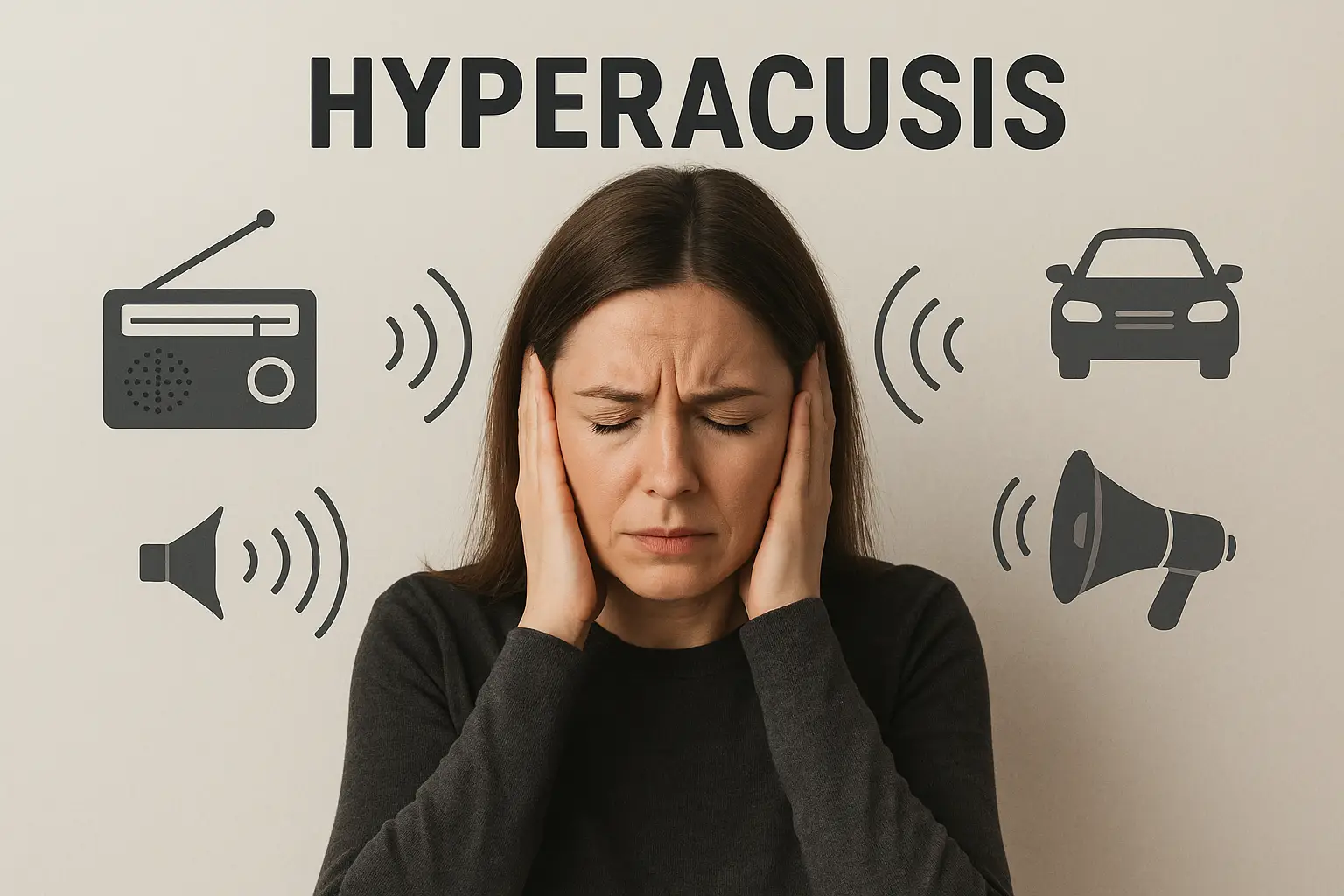Living with hearing problems doesn’t always mean hearing loss. For some people, certain everyday sounds feel painfully loud or uncomfortable — even when others barely notice them. This condition is called hyperacusis, and it can affect daily life in surprising ways.
In this guide, we’ll explain what hyperacusis is, its possible causes, common symptoms, and the treatment options that can help you live more comfortably.
What Is Hyperacusis?
Hyperacusis is a hearing sensitivity disorder where normal environmental sounds are perceived as too loud, sharp, or even painful. Unlike typical hearing loss — where sound becomes harder to hear — hyperacusis involves over-sensitivity to sound.
Everyday noises such as running water, clinking dishes, or car engines may feel overwhelming. This can lead to avoidance of social activities or increased anxiety in noisy environments.
What Causes Sound Sensitivity?
Hyperacusis can occur for a variety of reasons, including:
- Noise exposure – Repeated or sudden loud sounds (like fireworks or concerts) can damage the auditory system.
- Hearing loss – Certain types of hearing loss can change the brain’s sound processing, making some frequencies seem louder.
- Head injury – Trauma to the head or ear can cause sound sensitivity.
- Medical conditions – Migraine, Lyme disease, TMJ disorders, or Bell’s palsy can be associated with hyperacusis.
- Neurological issues – Some nerve-related conditions affect how sound is perceived.
In many cases, hyperacusis occurs alongside tinnitus (ringing in the ears), although the two are different conditions.
Symptoms of Hyperacusis
Symptoms vary, but may include:
- Sudden discomfort or pain from sounds most people tolerate easily
- Feeling “on edge” or anxious in noisy places
- Physical reactions to sound such as headaches, dizziness, or ear fullness
- Avoiding certain environments due to noise concerns
If these symptoms sound familiar, a hearing care provider can perform specialized tests to determine the cause and recommend next steps.
How Can This Be Treated?
Treatment depends on the underlying cause, but common approaches include:
- Sound therapy – Gradual exposure to gentle, low-level sounds helps retrain the brain to tolerate noise better.
- Hearing devices with sound generators – Specially programmed prescription hearing aids can provide relief from both hyperacusis and tinnitus.
- Counseling and education – Learning strategies to manage reactions to sound can reduce anxiety and discomfort.
- Medical treatment – If a related medical condition is found, addressing it may help symptoms improve.
While there is no instant cure, the right combination of therapies can greatly improve daily comfort and confidence.
When to Seek Help
If you’re avoiding activities, feeling stressed in noisy environments, or experiencing pain from everyday sounds, you don’t have to suffer in silence. Early intervention is important to prevent the condition from worsening.
Pure Sound Hearing Aids offers personalized hearing evaluations and solutions for managing hyperacusis, hearing loss, and tinnitus. Our hearing care specialists can recommend technology, sound therapy, and coping strategies tailored to your needs.
Take the First Step Toward Comfort
Contact Pure Sound Hearing Aids today to schedule your hearing consultation and start your path toward better sound tolerance.
For more details on how hyperacusis affects the ear and brain, visit the National Institute on Deafness and Other Communication Disorders (NIDCD), a trusted U.S. health resource.

